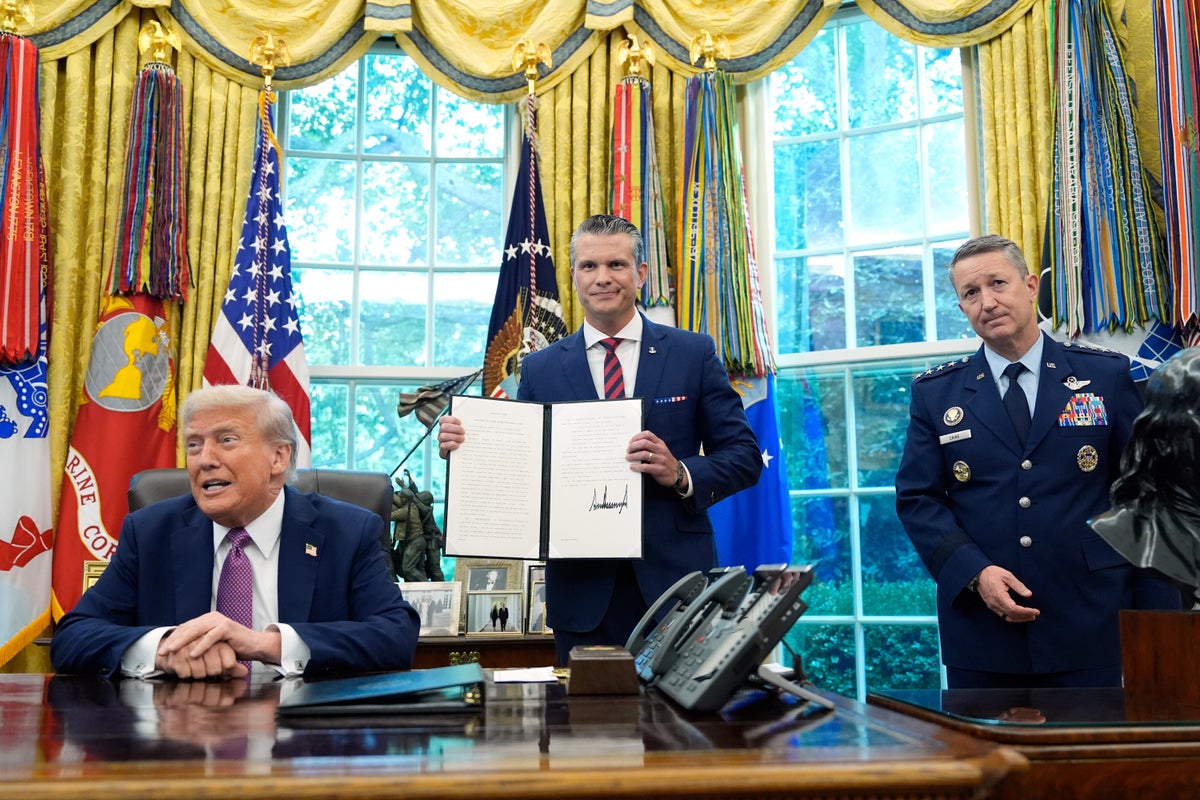The Evolution of Military Terminology in U.S. Politics: A Look at Trump’s Revival of “War”
The Changing Terminology of Defense
In recent discussions surrounding U.S. military policy, a provocative idea emerged from former President Donald Trump’s remarks: the potential renaming of the Department of Defense back to the Department of War. This notion, cloaked in the language of political correctness, has triggered a storm of debate within political circles. Trump’s rationale cites a need to return to the days when America’s military agenda was less about defense and more about aggressive posturing. This debate raises important questions about the implications behind the language we use to describe our military and its objectives.
The Historical Context
The Department of Defense, established in 1947 and stemming from the National Security Act, signified a pivotal shift in U.S. military strategy. This restructuring was not merely a semantic change; it was a recognition of a new global landscape following World War II. In this era of emerging superpowers and nuclear threats, Truman aimed to unify military branches under a single umbrella to foster collaborative defense strategies. The name change was intended to reflect a comprehensive approach to military readiness, not as a slap on strategy but as an acknowledgment of a more complex, multipolar world.
Trump’s Nostalgic Viewpoint
Trump’s assertion that the transition to the Department of Defense was a move toward “political correctness” rather than strategic necessity contrasts sharply with historical evidence. The president’s views seem anchored in a nostalgia for a simpler time when military might dictated global relations. His continuous reference to the former name has raised eyebrows, leading to questions about the actual motivations behind such a revival.
During a recent Oval Office address, Trump emphasized America’s historical military victories while expressing a desire to return to a more aggressive military posture. This reconceptualization reflects a broader narrative trend in which the former administration sought to redefine American values through the lens of military strength. It raises the specter of an era when diplomatic nuances seem lost in the allure of overt military dominance.
The Role of Contemporary Military Leadership
Under Defense Secretary Pete Hegseth, Trump’s rhetoric continues to gain support. Hegseth, known for his hawkish views and advocacy of a more aggressive military stance, appears to eagerly welcome this potential shift. His statements suggest a dramatic departure from previous military leadership philosophies, which prioritized alliances and soft power, instead embracing a worldview focused on strength and confrontation.
However, Trump’s penchant for warlike terminology also poses challenges. Critics like Lawrence Wilkerson, a seasoned military strategist, warn that endorsing overtly aggressive rhetoric could alienate allies and threaten global stability. As Wilkerson notes, the reliance solely on “hard power” risks misunderstanding modern geopolitical challenges and regresses one of the key achievements of the post-war era: diplomacy.
The Implications for U.S. Foreign Policy
Trump’s suggestion to revert to the Department of War is more than just a tactical name change; it’s emblematic of a mindset that prioritizes military might over diplomacy. This raises concerns about the future of U.S. foreign policy. The integration of military and diplomatic strategies has been a hallmark of American military philosophy since the Cold War—one that seeks to balance power with dialogue.
The implications of moving away from this strategic balance could be far-reaching. For instance, cutting resources to critical diplomatic agencies could position military solutions as the first response, rather than the last. Other nations could perceive this retrenchment as a lack of commitment to alliances that have historically provided a bulwark against potential adversaries.
The Evolving Nature of Warfare
In the contemporary arena, warfare transcends traditional battlefields, asymmetrically spanning domains like cyberspace and influencing global narratives. By dragging the conversation back to a binary view of “war” versus “peace,” Trump and his allies may overlook the complex strategies required to address modern threats. This perspective fails to account for evolving warfare dynamics where soft power—diplomatic relations, economic partnerships, and cultural exchanges—play an increasingly prominent role.
The multifaceted nature of current conflicts suggests that a nuanced approach, which involves understanding relationships and broader geopolitical contexts, is essential for successful governance and military strategy.
Historical Legacy and Future Considerations
As the debate continues, one wonders about the long-term implications of such terminology in the public consciousness. What does calling the Department of Defense the “Department of War” say to future generations about our national priorities? How will it influence not only the military’s image but also the public’s perception of international relations?
Engagement in these discussions is crucial, especially as global threats evolve and require adaptive strategies. The historic circumstances that birthed the Department of Defense afforded a reactive stance to the unpredictable nature of geopolitics—returning to a more confrontational language may very well signal a fundamental shift in how the United States navigates its role on the global stage.
In sum, the exploration of military language serves as a lens through which we can examine broader societal trends, cultural attitudes, and strategic priorities in an era defined by complexities far beyond traditional warfare rhetoric.



